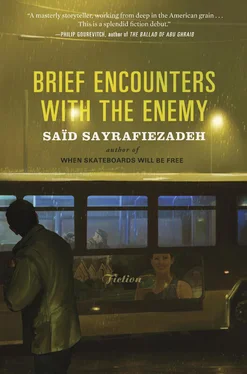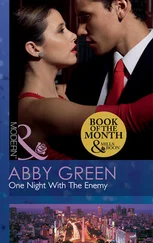Then I had the thought that this question was too trivial, given what he was going through, even if he wasn’t going through much, so I backspaced over that, too. Then I backspaced over everything because he might not want to hear me crooning about Mr. Bildman’s daughter and philosophizing about the speed of the Internet, while I sat in the comfort of my car and he waited for some new boots that fit his feet.
After that, I sat there staring at my blank BlackBerry not knowing what to write to him, wishing quite frankly that he’d never sent me anything at all, wishing that I could ignore the email altogether. Now I was the one stuck having to picture things that were unpleasant about my friend, like him sitting in the Internet café, his enormous frame slouching in the chair, typing away to his mom, to his girlfriend, to me, probably saying pretty much the same thing to each of us, hoping that someone would write back before his fifteen minutes of allotted time expired.
So I wrote,
Kick some ass!
Your friend,
Nick
I clicked send fast and got out of my car. I opened my trunk and the butterflies returned. The boxes were big and unwieldy, bottles of laundry detergent and the like, and I regretted not having brought Joey Joey along to help. I teetered under their weight. I hoped Zlottie would not notice me teetering.
But when I got to the front door, I saw that the lights were off and there was a sign taped to the window. CLOSED FOR SHABBOS.
So I had to wait. I had to wait four days until my day off. On my days off, I usually sleep till noon, but I was awake at seven, thinking about what to wear. I ended up putting on a suit and tie. Dark suit, white shirt, dark tie. I thought it’d be good for her to see me in professional attire. “You look like a senator, Nick,” she’d say. I took the tie off — business casual. “Oh, this is just what I wear when I’m not working,” I’d say. Then I took everything off and masturbated.
When I got to the store, I had to get the big boxes out of the trunk again. All the pushing and pulling wrinkled my clothes and pissed me off. The door jingled like a sleigh bell when I entered, but Zlottie didn’t hear me because three Chinese women were crowding the counter, screaming about some apples and oranges. They were sitting on top of the counter, the apples and oranges, and the Chinese women kept picking them up and putting them down as if this would prove their point. I couldn’t see Zlottie, but I could hear her voice. “I’m sorry,” she kept saying over and over. In the face of the customers’ displeasure, she was as polite as ever, her voice as sweet as ever. “You, you, you,” the women said, unswayed. They were short and round, and they wore polka-dot outfits that could have been pajamas. They crowded her like bullies. Somebody was trying to rip somebody off, and it wasn’t clear whom. I could imagine Zlottie’s father sitting at his gunmetal desk in the back room, oblivious to his daughter’s dilemma.
The women must have thought I was an official in my suit, a detective maybe, because they got quiet and made way for me. “What seems to be the problem here?” I said. I set my boxes down on the counter, amid their apples and oranges, and I smiled at Zlottie, who, even in her distress, looked beautiful. Strands of black hair dangled in front of one eye.
“You, you, you,” they said to Zlottie, but in my presence the fight had gone out of them. They paid the ticket price and gathered their fruit and left. The door jingled three times.
In their wake, it was silent. In the silence, Zlottie blurted, “You, you, you,” with breathy exaggeration, and she pulled the corners of her eyes so that they slanted. Her imitation was surprisingly good. I laughed. Then I took the high ground: “There’s good and bad in all races,” I said.
She thought about it. “That’s true,” she said.
It was something my father had told me in his better moments. “There’s good and bad in all races, Nick.” He had an obsession with good and bad, the latter of which generally included, among others, Jewish people. When I was about six years old, he had observed me peeling a banana without first washing it. “What’s wrong with YOU?” he had shouted as if I were about to insert a burning torch into my mouth. He got off the couch and pounded his hands on his legs. His face was contorted with terror and fear, and this made me cry. “You see them in the supermarket putting their hands over everything!” Then calmly, patiently, lovingly, he said, “Go wash that banana in the sink, Nicholas.”
“You look like a salesman, Nick,” Zlottie said. I couldn’t tell if this was a compliment.
“Thank you,” I said.
“A door-to-door salesman,” she continued. “What did you bring”—she patted my boxes—“encyclopedias?” She laughed. “Girl Scout cookies?”
“Zlottie,” I said, leaning toward her and pressing hard against the counter and speaking too loudly. “I happen to have a Sunday off at the end of the month—”
But before I could finish she’d already said yes.

I’d been wrong about Joey Joey: maybe he did have that thing . Because when he came in to work the next day, he informed me that he had joined the army.
“Effective immediately, brigadier general!” he said. He saluted and clicked his heels.
Apparently he’d gone down to the Career Center, taken a physical, signed some papers, and now he was officially a soldier.
“I’ve got twenty-eight percent body fat,” he said. “That’s not too bad.”
I told him I was proud of him and gave him the rest of the day off. In turn, he invited me over to his mom’s house that weekend for a going-away party. Then he spent the rest of the afternoon walking around the store shaking hands with the guys and getting kissed by the girls. By the time he was done, he looked like his face had been painted with a Magic Marker.
It was eight P.M. when I left the store with my spreadsheets.
“See you tomorrow, Mr. McDonough!”
Out in the parking lot, the air was finally getting nice and warm and I took a deep breath. When I exhaled, I heard someone calling “Niiiiiiiiiiiiiiick!” It was Pink calling. Pink from the neighborhood, from high school, Pink who’d worked one year at Walmart before coming in stoned and getting fired and losing all his benefits. He still shopped there, no hard feelings. He was wearing an enormous gold watch and pushing a stroller with a sleeping baby that had jelly on its face.
“Niiiiiiiiiiiiiiick!” he yelled. “Nick!”
He shook my hand hard, with deep feeling, like we were long-lost friends who hadn’t seen each other in years. I’d seen him two weeks ago.
“Did you hear what happened to Chip?” he said, holding on to my hand and looking at me with half-sad, half-sober eyes.
“What happened to him?” I asked.
But I suddenly knew what had happened to him. I could hear my voice crack as I spoke—“What happened, Pink?”—and I felt queasy, wobbly, happy to be grasping Pink’s soft hand as I saw my friend Chip lying six feet six facedown in a ditch somewhere on the other side of the world. And here he had just emailed me, saying it was boring and there was nothing to worry about, and I’d believed him. I’d said there wasn’t going to be a war, and he’d believed me. And now Joey Joey was on his way there, to that same war, all smiles and lipstick and papers signed.
“He got called up for the army,” Pink said. “You didn’t hear?”
I withdrew my hand. “That’s old news, Pink,” I said. Pink always had old news.
“I need a job, Nick,” he said amiably, pushing the stroller into the store.
Читать дальше













